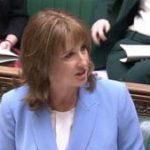
High earners will benefit most from today’s mini budget announcement.
Speaking to Business Matters Paul Haywood-Schiefer, Senior Manager at leading tax and advisory firm Blick Rothenberg said: “The reversal of the recent increase to NIC rates will provide savings to all earners, where their income is above around £10,000 per annum (and assuming similar reductions are made in the devolved administrations in Scotland and Wales).
“Whilst the reduction provides welcome relief, the additional borrowing required to fund this, and the other introduced measures could cause substantial headaches for future governments.”
He added: “High earners will particularly benefit following the abolishment of the additional rate of tax, effective from April 2023, meaning that income over £150,000 will no longer incur a further 5% tax charge and instead be taxed at 40%. This measure itself only affects 629,000 taxpayers out of a total of 34 million in the UK, but the tax savings for these individuals will be significant. For example, a single earner on a £1million salary will save over £50,000 in tax and NIC from April 2023. This compares somewhat strikingly to a single earner on a £20,000 salary who will save only £218.
“A surprising “bumper” winner here could be directors of companies. Due to a quirk in the way NICs are calculated, a director pays on an “annualised basis” rather than a weekly or monthly figure. As such, the increase to the NIC rate from November may actually apply retrospectively from April for these individuals. The exact detail/mechanics will need to be checked here when further details are published.”
Haywood-Schiefer said: “The savings are slightly lower for a self-employed person, although that will be softened by class 4 NIC kicking in at a later amount.
“The ever-struggling pub and bar industry may feel some relief from the cancellation of the planned alcohol duty increases, but with rising costs on utilities, this is a small help to solve the ever-growing issues within this industry.
“Amendments to the rates of stamp duty land tax (although this is yet to be confirmed for Scotland and Wales) for all individuals provide some welcome relief in the face of ever-increasing mortgage interest rates, particular winners here are first time buyers who have seen a vast increase in both their 0% band for SDLT to £425,000 alongside an increase in the maximum property value that qualifies. Additionally, the plans to lower the barriers for development of land could provide further assistance in battling the housing crisis, although will potentially place the Government on a collision course with their usual support in the countryside.
“Small business owners and entrepreneurs will be relieved to hear that the tax incentivised investment schemes are being enhanced and expanded. They will also benefit from equivalent cuts to employer NIC, as well as cuts to the dividend rate from April 2023 which would see the top rate of tax on a dividend reduced from 39.35% to just 32.5%.”
Losers
Haywood-Schiefer said that the losers are: “Individuals who have paid stamp duty land tax in recent months, since the cancellation of the reliefs introduced during lockdown, will have been unfortunate to have fallen in this period of comparatively higher tax rates.
“Additionally, low-income individuals with income below the personal allowance will not receive any additional assistance in this period of high inflation. Whilst all households will receive the £400 to assist with energy bills, this is the only relief for the individuals who are typically the hardest hit by inflation.
“The real losers will be who has to pay for all these cuts later down the line. No costings have been provided for these measures, but the borrowing will be significant, especially in combination with the energy crisis help being offered. These cuts may well be short lived, but long felt.”
Read more:
The Chancellors’ winners and losers





